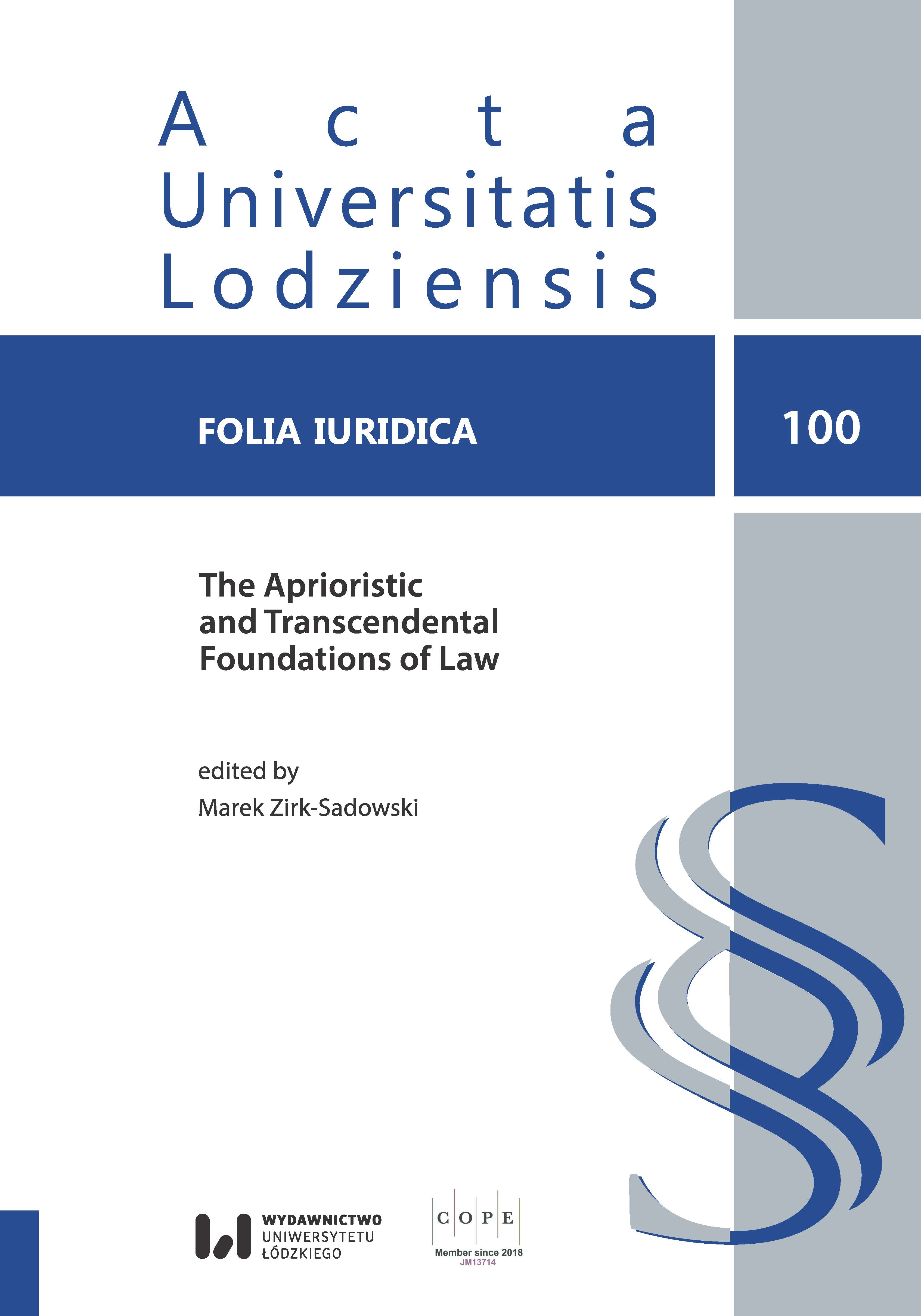The Intentionality, Intersubjectivity, and Causability of Civil Law Transactions
The Intentionality, Intersubjectivity, and Causability of Civil Law Transactions
Author(s): Mariusz Jerzy Golecki, Bartosz WojciechowskiSubject(s): Law, Constitution, Jurisprudence, Philosophy of Law
Published by: Wydawnictwo Uniwersytetu Łódzkiego
Keywords: the principle of causality; legal acts; intentionality; brute facts; institutional facts; the philosophy of mind; intention
Summary/Abstract: The paper presents and discusses the principle of causability as expressed in many civil codes. This principle requires that the existence of any obligations of transfers of ownership the legal cause – usually associated with 3 types of dealings having been identified by Roman jurists and elaborated by postglosators and founders of the 17th-century natural law movement, namely: causa solvendi, donandi, aquirendi, or causa cavendi – creates a condition for validity of legal act. Referring to the philosophical background of the analytical philosophy of intention and intersubjectivity, authors advocate a modified theory of causability, according to which it is permissible for the parties to invoke abstract actions if this is not opposed by binding legal provisions.
Journal: Acta Universitatis Lodziensis. Folia Iuridica
- Issue Year: 2022
- Issue No: 100
- Page Range: 65-81
- Page Count: 17
- Language: English

